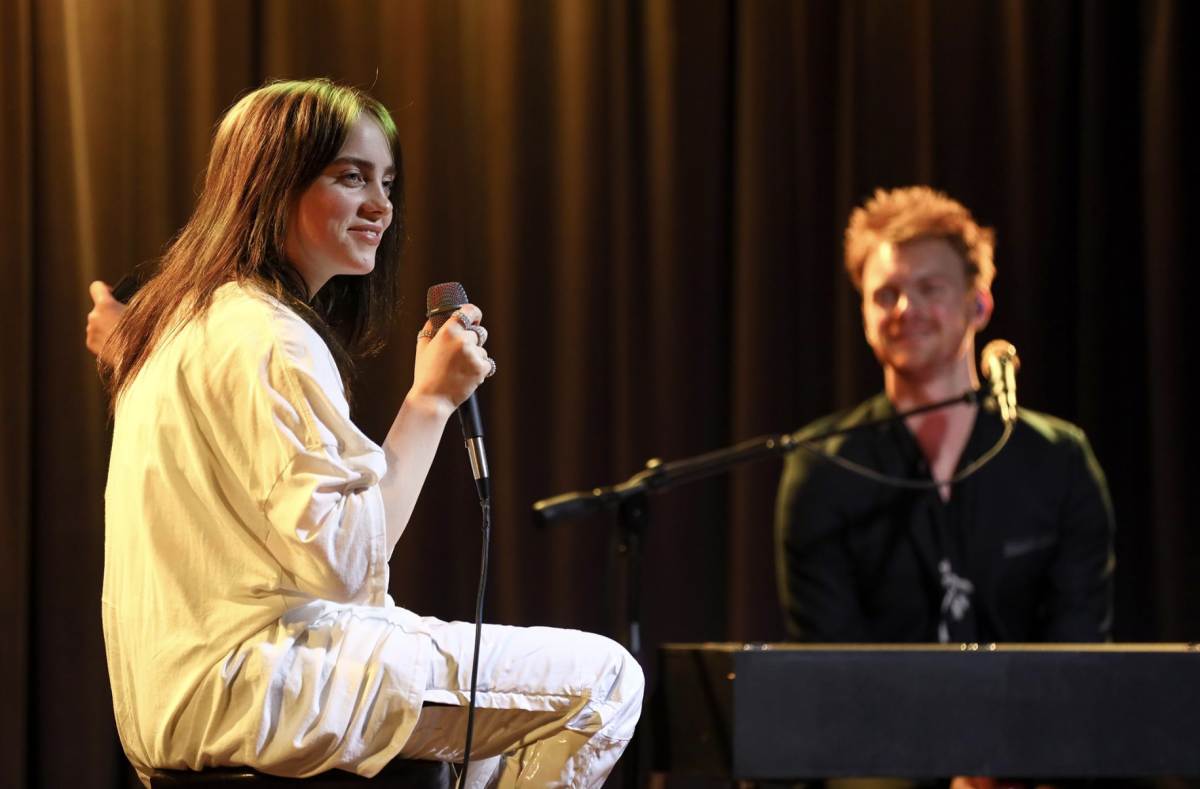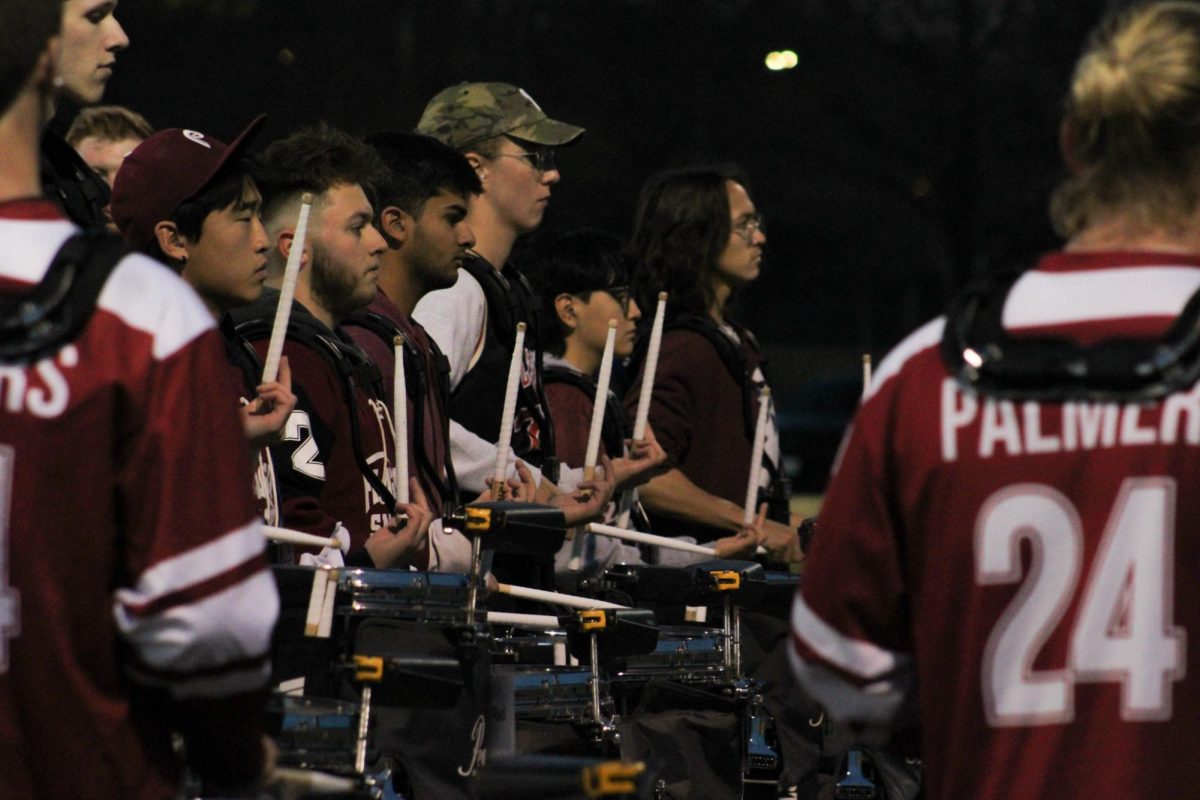
Zammuto started from the beginning, with their fated union “in New York City in the year 2000 or so – about 10 years ago.” Purely by coincidence, they “happened to live in the same apartment building, and a mutual friend introduced us down there.”
According to the two, they had dinner at de Jong’s apartment one evening, and it took off from there. “I kind of introduced him to what was then the beginnings of what we call the sound library,” de Jong explained. “The sample library – that’s kind of the basis – the instruments – that the music usually starts from.”
Before they had started collaborating extensively, “it was comprised mostly of samples from LPs and out of movies,” but, he asserted, “since then it’s really kind of grown with all the media.”
Reflecting on their mutual artistic genesis, de Jong cited an “interest in found sounds and newly created sounds,” which turned out to be “weirdly and interestingly complementary.”
Since they began making music together, their tastes and methods have expanded as part of what Zammuto called “sort of a natural progression of what of what we’ve been interested in,” adding, “of course, the sound library is the thing that defines the direction of the new work most.”
He went on to relate this progression to their latest record; “There’s always this kind of moment of critical mass within the sample library, where all of a sudden you have a lot of related recordings.”
For “The Way Out,” he gave the example of “the hypnotherapy stuff” that comprises the bulk of the first and last tracks, as well as a few in between.
“There was just an avalanche of that material to work with, given all of the thrift shopping that we did on our previous tours. So it became clear that that was a promising direction, early on,” he said.
Beyond thrift stores, de Jong described the source of The Books’ sounds as “boundless.”
“You play your own instruments,” he explained. “You find obsolete media; there are libraries. You can go out with a good recorder or a crappy recorder, out in shops or in nature.”
The incredible breadth of the duo’s sound is immediately noticeable in their music. On “I Am Who I Am,” the mere first seven seconds go from a six-note woodwind comment to a fuzzy recording of a small group of quietly laughing adults to a single female voice declaring: “nuttiness.” All of this before the song really even starts, and it still feels coherent.
At live shows, The Books promise even stranger coherency. Zammuto described a Books performance as “halfway between a concert and a film. The visuals are used in a very rhythmic way, and they’re very much in sync with the music in – I think – an unexpectedly integrated way.”
The visuals hold so much weight at the live show that he went so far as to describe them as “the lead singer of the band.” According to Zammuto, they are looking to create with the live performance “this kind of synesthesia, like a real thoughtful combination of sight and sound.”
“Synesthesia,” which refers to a blending of senses (sight and sound being only two of the seemingly infinite dimensions of experience explored by The Books) is a word you will hear again and again in any discussion of their music. This idea is reflected in their attitude toward music-making. “It’s really, in the end, what your ears pick up,” said de Jong, “and how your brain is processing it – what you want to hold on to, what really piques your interest.”
To call their approach open-minded would be an injurious understatement. De Jong expressed, “It’s all around us, and we are kind of trained to tune out things that you just have to live with, to protect your ears for what really seems to be worth it.”
The Books subvert this subconscious training with their music. This secretly anthemic lyric from “We Bought the Flood” seems to corroborate that notion: “Let’s notice everything, I mean every grain of salt.”
When asked about how listening to his own music makes him feel, Zammuto replied that “what makes it really interesting music is that it’s never the same experience twice when you listen through it. Your ear has freedom to follow different lines every time.” This is what makes The Books so exciting. The clarity of their musical lens is so crystalline that it can be an almost spiritual experience to realize the technique involved in its implementation. As Zammuto put it: “Sometimes it’s just kind of sleight of hand, where you have one thing that you think is the foreground sound, but then you realize later on there’s this other thing that maybe means even more, but it’s just behind it.”
“There’s this kind of sense of epiphany,” he added.
“Intricacy,” chimed in De Jong.
The Books will be playing at Pearl Street this Friday at 9 p.m., supported by music-hall indie rockers The Black Heart Procession.
Garth Brody can be reached at [email protected].












